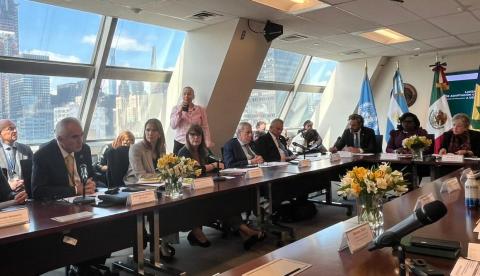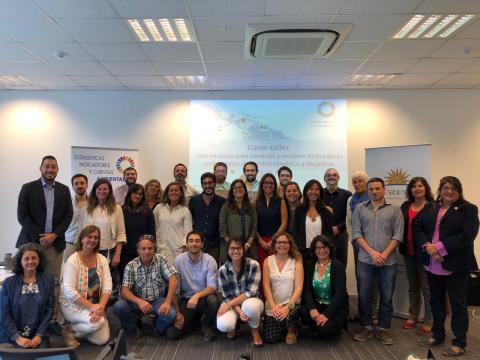News
Peru is among the countries of Latin America that is most vulnerable to natural disasters. The establishment of the National Center for Disaster Assessment, Prevention and Risk Reduction (CENEPRED) is among the most significant efforts undertaken in recent times by the Peruvian government to comprehensively address the vulnerability of its population.
Over the past few months, the Economic Commission for Latin America and the Caribbean (ECLAC), with its well-established experience in dealing with natural disasters, has helped strengthen the capacity of CENEPRED officers, and of national and regional government officials to plan, prepare and respond to such events.
As the regional hub for the provision of strengthened leadership in disaster assessment and post disaster needs analysis across Latin America and the Caribbean, ECLAC subregional office for the Caribbean conducted a series of training sessions in disaster assessment in different regions of Peru.
This month, a team from the ECLAC Caribbean office travelled to the San Martin and Piura regions to provide training, aimed at strengthening the capacity of CENEPRED and regional government officials to assess damages and losses caused by disasters.
Over 70 officers from the various regional governments participated in the sessions, which took place in Moyobamba City, San Martin from 14-16 October, with a combined session held for the representatives of Piura and Lambayeque regions from 19-21 October.
ECLAC Caribbean’s Sustainable Development and Disaster Unit Coordinator, Omar Bello, who led the team to Peru, described the sessions as a successful conclusion to a series of training courses held in the South American country this year.
He also highlighted the organization’s ongoing commitment to raise the awareness of students in every city where disaster training is conducted. To this end, the team visited two public schools, one in Moyobamba and one in Piura, where they shared disaster assessment information with some 160 students.
The training implemented in Peru was part of an ongoing series of ECLAC disaster training courses, aimed at providing countries with the knowledge to determine their own recovery and reconstruction path, and to incorporate future measures to reduce vulnerabilities and increase resilience.


